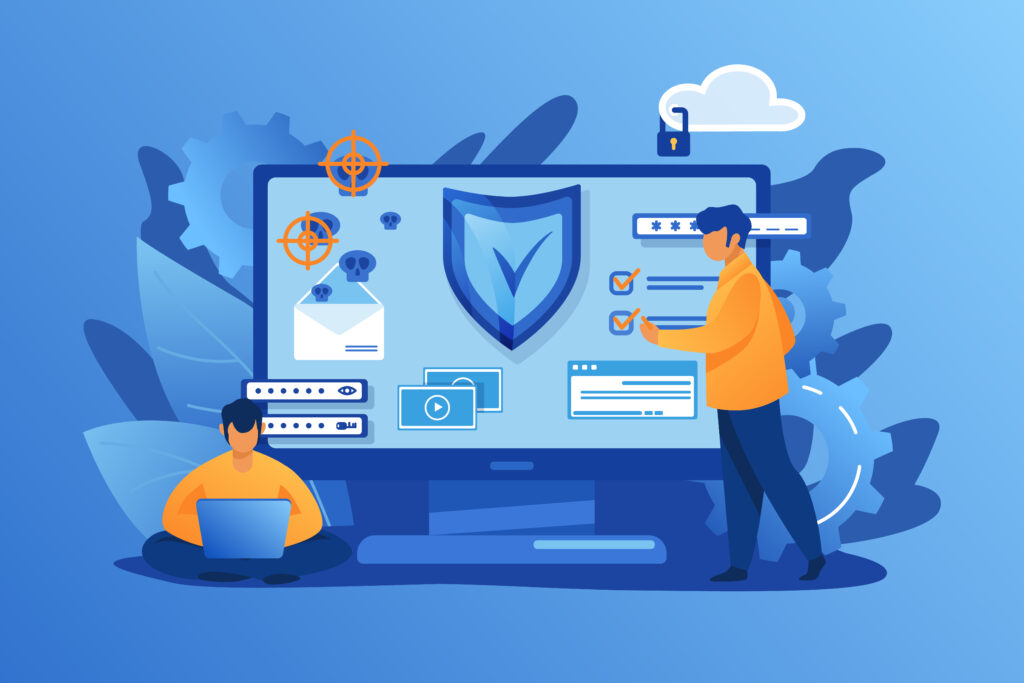In today’s hyper-connected world, the internet has become an integral part of our daily lives. From online shopping to social networking, we rely on the internet for a multitude of tasks. However, with this increased reliance on the digital realm comes the ever-present threat of cyberattacks and data breaches. This is where internet security steps in as a crucial line of defense. In this article, we will delve into the fundamentals of internet security, its significance, and the measures individuals and organizations can take to protect themselves online.

The Basics of Internet Security
Internet security, also known as cybersecurity, encompasses a broad range of practices, technologies, and strategies aimed at safeguarding digital information and online activities from unauthorized access, data breaches, and cyberattacks. Its primary goal is to ensure the confidentiality, integrity, and availability of data and systems in the digital environment.
Key Components of Internet Security:
-
Authentication: Authentication is the process of verifying the identity of users or devices attempting to access a system or network. Common authentication methods include usernames and passwords, biometrics, and two-factor authentication (2FA).
-
Authorization: Once authenticated, users are granted appropriate access privileges based on their roles and responsibilities. Authorization ensures that individuals can only access the data and resources they are allowed to.
-
Encryption: Encryption is the process of converting data into an unreadable format (cipher text) to prevent unauthorized parties from intercepting and understanding the information. Secure Socket Layer (SSL) and Transport Layer Security (TLS) are commonly used encryption protocols for securing online communications.
-
Firewalls: Firewalls act as barriers between a trusted internal network and untrusted external networks, such as the internet. They filter incoming and outgoing traffic, blocking potentially harmful data and allowing legitimate traffic to pass through.
-
Antivirus and Anti-Malware Software: These programs detect and remove malicious software, such as viruses, worms, Trojans, and spyware, that can compromise the security of a system.
-
Intrusion Detection and Prevention Systems (IDPS): IDPS monitor network traffic for signs of suspicious or unauthorized activity and can either alert administrators or take automated actions to block threats.
-
Security Policies and Training: Establishing security policies and providing cybersecurity training to employees is essential to create a security-conscious culture within an organization.
The Importance of Internet Security
-
Protection Against Data Breaches: Data breaches can have devastating consequences, including financial loss and damage to an organization’s reputation. Internet security measures help prevent unauthorized access to sensitive information.
-
Preventing Cyberattacks: Cyberattacks, such as ransomware, phishing, and distributed denial-of-service (DDoS) attacks, can disrupt operations and cause significant harm. Internet security helps mitigate these threats.
-
Preserving Privacy: Internet security measures protect individuals’ and organizations’ online privacy by ensuring that personal and confidential information remains confidential.
-
Business Continuity: Internet security is crucial for maintaining the continuity of business operations. By safeguarding critical systems and data, organizations can avoid downtime due to cyber incidents.
-
Compliance and Legal Requirements: Many industries have regulatory requirements for data security. Failing to implement adequate internet security measures can lead to legal and financial consequences.
Internet Security Best Practices
-
Use Strong, Unique Passwords: Create complex passwords and avoid using the same password for multiple accounts. Consider using a password manager to securely store and manage passwords.
-
Enable Two-Factor Authentication (2FA): Whenever possible, enable 2FA for your online accounts. This adds an extra layer of security by requiring a second authentication method, such as a text message or app-generated code.
-
Keep Software Updated: Regularly update operating systems, web browsers, and software applications to patch vulnerabilities that hackers could exploit.
-
Be Cautious with Emails: Avoid clicking on suspicious links or downloading attachments from unknown sources. Phishing emails are a common method used by cybercriminals to trick users into revealing sensitive information.
-
Install Antivirus and Anti-Malware Software: Use reputable antivirus and anti-malware software to protect your devices from viruses and malware.
-
Secure Your Wi-Fi Network: Use strong passwords for your Wi-Fi network and enable encryption (WPA3 is the latest standard) to prevent unauthorized access.
-
Backup Your Data: Regularly back up your data to an external device or a secure cloud storage service. This ensures that you can recover your data in case of a cyberattack or hardware failure.
Conclusion
Internet security is an indispensable aspect of our digital lives, protecting us from cyber threats that lurk in the virtual world. Whether you’re an individual, a small business owner, or part of a large corporation, understanding and implementing internet security best practices is crucial for safeguarding your data and online activities. As technology continues to evolve, so too must our commitment to maintaining a secure and resilient digital presence. Stay informed, stay vigilant, and stay secure in the ever-changing landscape of the internet.